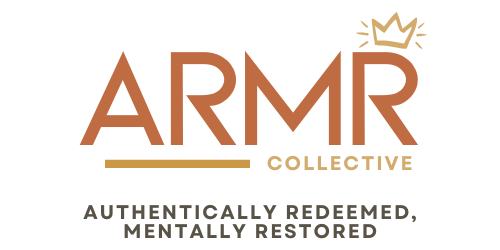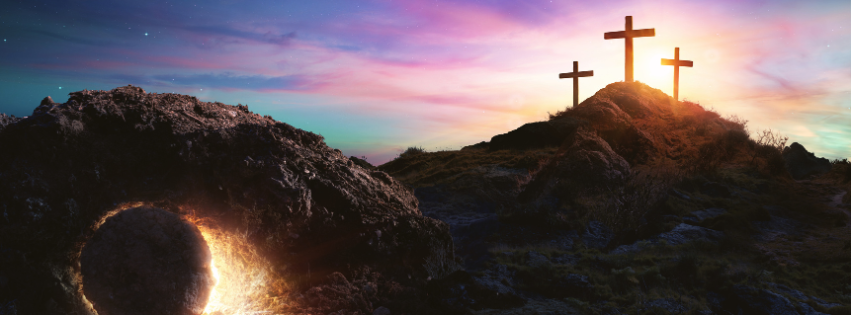Easter always makes me think about new beginnings. There’s something so profound about the story—Jesus, buried in darkness for three days, then emerging victorious from the tomb. It’s not just a religious tale; it’s a pattern woven into the very fabric of our lives. Death, then life. Ending, then beginning. Failure, then redemption.
I’ve been reflecting lately on how desperately we all need second chances. Not just once, but over and over again. And I think that’s why Easter resonates so deeply, even with people who aren’t particularly religious. We’re all longing for resurrection in some area of our lives.
The Symbolism of Rebirth in Easter
Easter is built on the foundation of rebirth. After the darkness of Good Friday comes the light of Resurrection Sunday. But the symbolism goes deeper than the historical event. It speaks to something we all experience—the need for renewal after periods of darkness.
I think about the times in my life when I’ve needed my own rebirth and renewal. After losing my grandparents, my aunt, and young cousin all within a few short years, I felt like a part of me had died too. Those losses created empty spaces that ached with absence. During my depression, I was walking through my own personal darkness, where even getting out of bed felt like running a thousand miles.
Sometimes we need our own rebirth after a difficult truth or realization hits us.
Maybe you’ve had one of those moments—when you suddenly see something about yourself or your life with painful clarity, and you realize things can’t continue as they have been. These moments force us to reprioritize, to reimagine our lives in a new way.
The Resurrection as a Model for Personal Transformation
What strikes me about the resurrection story is that Jesus wasn’t just brought back to life—He was transformed. The scars remained (which is significant), but He had a new purpose, a new mission, a new way of being.
I think of this as our model for “mini-resurrections”—those moments when we have to get back up after trauma, challenge, or hardship.
It’s not about pretending the hard thing never happened. It’s about allowing it to transform us into something new.
Can you identify the patterns of life and death in your own story? I can clearly trace mine: when my loved ones passed away, parts of my heart died with them. My depression was another kind of death—a death of joy, hope, and purpose. The gossip situation with my friends tried to kill our relationships.
But in each case, something new eventually grew in the space where death had been. Not a replacement—never that—but something unexpected and, in its own way, beautiful.
Finding Identity in New Beginnings
One of the most powerful truths Easter teaches us is that WE ARE NOT DEFINED BY OUR PAST. The grave couldn’t define Jesus, and our past mistakes don’t have to define us.
This truth has been revolutionary in my own life. For years, I let my depression define me. I let grief become my identity. I allowed past hurts to determine how I saw myself and others. But Easter reminds me that new life means new identity.
There’s another side to this, too.
Just as we need to embrace new beginnings for ourselves, we must allow growth in others and not resent them for past behavior or mistakes.
I think about how Jesus restored Peter after his denial, giving him a fresh start and renewed purpose. What a powerful model of extending second chances to others.
The Courage It Takes to Begin Again
Let’s be honest—starting again is terrifying. The disciples had to rebuild everything after the crucifixion. Their leader was gone, their hopes dashed, their future uncertain. Beginning again took tremendous courage.
The same is true for us. I know the fear that comes with trying again—the worry that I’ll fail, that I’ll get hurt again, that it won’t work out this time either. In a perfect world, people would extend grace if a mistake was made again. But we don’t live in a perfect world, and the fear of “what will people think if I can’t” can keep us paralyzed.
The fear of others’ opinions is a prison of our own making. Jesus didn’t let the opinions of others keep Him from His purpose, and neither should we.
Don’t let the fear of “what will people think if I can’t” keep you from trying.
How God Specializes in Second Chances
If there’s one thing the Easter story makes crystal clear, it’s that NO ONE IS BEYOND REDEMPTION. Think about the thief on the cross—in his final moments, he found forgiveness and the promise of paradise.
If second chances can come that late and in that situation, they can come for any of us.
I’ve experienced this truth in my own life, both in receiving second chances and in learning to give them to others. After the gossip situation with my friends nearly destroyed our relationships, we had a heart-to-heart and committed to building something new and healthier. That wouldn’t have been possible without the willingness to offer and accept second chances.
The beautiful thing about God’s second chances is that they’re not grudging or partial.
They’re complete, transformative, and often better than what we had before.
The resurrection wasn’t just a return to the status quo—it was the beginning of something far greater than anyone could have imagined.
Embracing Your Second Chance
Easter isn’t just about celebrating a historical event; it’s about recognizing that the same power that raised Jesus from the dead is available to bring new life to our situations today.
Where do you need resurrection in your life right now? What relationship needs healing? What dream needs reviving? What part of yourself have you buried that needs to be brought back to life?
The invitation of Easter is to stop living in Good Friday. To roll away the stone of despair, shame, or fear that’s keeping you entombed. To step out into the light of a new day, new possibilities, new hope.
Second chances aren’t about pretending the past didn’t happen. They’re about allowing that past—pain and all—to be transformed into something that gives life rather than takes it away.
This Easter, I’m embracing the God of second chances. I’m choosing to believe that my past mistakes and failures don’t define my future. That the losses I’ve experienced, while permanently part of my story, don’t get the final word. That even in my darkest moments, resurrection is possible—not just someday in heaven, but here and now.
Because that’s the promise of Easter: death gives way to life. Endings become beginnings. And through the grace of God, second chances are always, always possible.
Where do you need a second chance in your life this Easter season? I’d love to hear your thoughts in the comments below.




Beautiful read and very inspiring! Intertwining everyday life with examples from the Bible creates a deeper and relatable connection with religion. You bring a stronger bond of faith to your readers! You should be very proud, you’re doing amazing work!
Thank you so much! I appreciate the kind words more than you know 🙂